-
[현장영상+] ’강선우 1억’ 김경, 경찰 출석…고강도 조사 예고재생
![[현장영상+] ’강선우 1억’ 김경, 경찰 출석…고강도 조사 예고](https://image.ytn.co.kr/general/jpg/2026/0111/202601112324117536_h.jpg)
-
저희가 조금 전 속보로 전해드렸는데요. 강선우 의원에게 공천헌금 1억을 건넨 의혹을 받는 김경 서울시 의원이 조금 전 경찰에 출석했습니다. 미국에서 귀국한 뒤, 자택을 들러 경찰에 출석한 건데요. 강도 높은 조사가 이어질 전망입니다. 먼저 현장으로 가보겠습니다. 김경 시의원의 모습이 보이고 있습니다. 2022년 지방선거를 앞두고, 당시 더불어민주당 공천관리위원이었던 강선우 의원 측에 공천을 대가로 1억 원을 건넸다는 의혹을 받고 있는데요. 현재 서울 경찰청에 출석한 모습을 저희가 화면으로 보여드리고 있습니다. 앞서 김 시의원은 사건 배당일이었던 지난달 31일 미국으로 출국했다가 11일 만인 오늘 입국했는데요. 취재진의 질문에 아무 대답 없이 경찰청으로 들어가는 모습이 지금 화면으로 보여드리고 있습니다. 앞서 김 시의원은 입국과 동시에 경찰이 자택 압수수색에 나서면서 김 시의원은 압수수색 참관을 위해서 자택에 들렀다가 경찰청에 출석했다는 소식이고요. 출석하고 있는 모습을 저희가 화면으로 전해 드리고 있습니다. 조사 결과가 어떻게 나올지 지켜봐야 하는 상황이고요. 야간 조사가 이어지면서 휴대전화도 압수한 것으로 파악됐는데 관련해서 1억 원을 전달했는지 여부와 또 공천 목적이었는지 등을 집중적으로 조사할 것으로 보여지고 있습니다. 관련해서 저희가 취재가 되는 대로 이어지는 뉴스에서 전해드리도록 하겠습니다. ※ ’당신의 제보가 뉴스가 됩니다’ [카카오톡] YTN 검색해 채널 추가 [전화] 02-398-8585 [메일] social@ytn.co.kr
-
민주당 원내대표에 한병도…최고위원 강득구·이성윤·문정복 선출재생
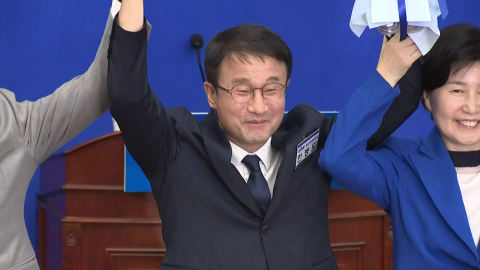
-
민주당 새 원내대표에 3선 한병도 의원이 선출됐습니다. 신임 한 원내대표 앞에는 개혁 입법과 당 공천헌금 의혹 문제 등 난제들이 놓여 있습니다. 민주당은 최고위원도 3명을 새로 뽑았는데 친정청래계 후보 2명, 친이재명계 1명이 선출됐습니다. 이동우 기자가 보도합니다. [앵커] [진선미/민주당 선관위원장 : 한병도 후보가 더불어민주당 신임 원내대표에 당선됐음을 선언합니다.] 민주당 원내대표 선거, 1차 투표에서는 과반 득표자가 나오지 않아 결선투표를 치른 끝에 한병도 후보가 백혜련 후보를 누르고 선출됐습니다. 한 신임 원내대표는 1967년생으로 22대 국회 전반기 예결위원장, 문재인 정부 청와대 정무수석 등을 역임한 3선 의원입니다. 한 원내대표는 혼란을 수습하고 이재명 정부를 뒷받침하겠다고 밝혔습니다. 지금 이 순간부터 일련의 혼란을 신속히 수습하고 내란종식, 검찰 개혁, 사법개혁, 민생 개선에 시급히 나서겠습니다. 우리의 목표는 하나, 이재명 대통령의 성공입니다. 신임 원내대표의 임기는 오는 5월까지 4개월에 불과하지만 개혁 입법과 민생 과제를 동시에 다뤄야 하는 과제를 안고 있습니다. 특히, 김병기 전 원내대표와 강선우 의원이 연루된 공천헌금 수수에 대한 대응이 발등의 불입니다. 최고위원 보궐선거에서는 3명을 새로 뽑았는데 친정청래계 후보 2명, 친이재명계 1명이 선출됐습니다. 친명계 강득구 후보가 1위로 선출됐으며, 친청계 이성윤, 문정복 후보가 2,3위로 최고위원에 입성했습니다. 하지만 친명계 이건태 후보는 권리당원 투표에서 최하위에 머무르며 고배를 마셨습니다. [강득구 최고위원 : 끝까지 최선을 다했지만 우리 이건태 의원님 수고하셨습니다. 그리고 이 자리에 함께 못했지만 유동철 (지역위원장님) 뜻을 잘 이어받겠습니다. 우리 청래대표 중심으로 이재명 정부 성공….] [이성윤 최고위원 : 조희대 수사 촉구, 당정청이 원팀이 돼서 대한민국을 새롭게 만들어달라는 당원들의 요구를 마음에 새기겠습니다.] [문정복 최고위원 : 저희가 보답하는 길은 정청래 지도부의 단단한 결속으로 이재명 정부의 성공을 견인하는 것이라 생각합니다.] 정청래 대표는 최고위원 투표 결과와 관련해 선거 과정에서 마음의 상처 같은 것이 있었다면 지워주시길 바란다며 원팀으로 이재명 정부를 든든하게 뒷받침하자고 강조했습니다. YTN 이동우입니다. ※ ’당신의 제보가 뉴스가 됩니다’ [카카오톡] YTN 검색해 채널 추가 [전화] 02-398-8585 [메일] social@ytn.co.kr
-
’내란 우두머리 혐의’ 다음 달 선고…윤석열 운명 가를 핵심 쟁점은?재생
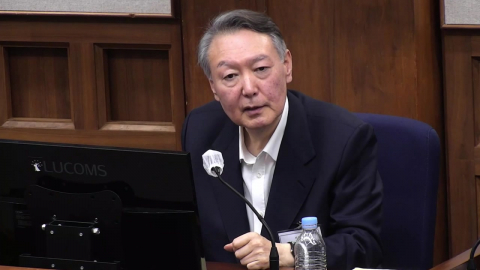
-
모레 내란 우두머리 혐의로 기소된 윤석열 전 대통령에 대한 결심 공판이 열리면 다음 달 1심 선고가 내려질 것으로 보입니다. 윤 전 대통령의 운명을 가를 핵심 쟁점을, 김평정 기자가 정리했습니다. [기자] 공수처와 경찰의 체포, 특검의 기소 과정에서 윤석열 전 대통령 측은 일관되게 계엄 선포는 통치의 영역이라고 주장해왔습니다. 재판 대상이 아예 될 수 없으니 무죄라는 겁니다. 특검은 일축합니다. 국민의 기본권과 헌법에 직접 관련이 있다면 통치 행위도 사법 심사 대상이고, 전두환도 그래서 단죄할 수 있었다고 반박합니다. 내란죄의 핵심 구성 요건으로 들어가는 계엄 선포의 목적도 엇갈립니다. 윤 전 대통령은 거대 야당을 겨냥한 경고성 계엄이었다고 주장하지만, 특검은 정치적 반대 세력을 없애려 한 것으로 규정했습니다. 그렇다면 정말 폭동이 있었는지도 선고 결과에 영향을 미칠 중요 쟁점으로 꼽힙니다. 특검은 국회를 봉쇄하고, 이재명, 우원식, 한동훈 등 중요 정치인을 체포해 구금하려 한 것 자체가 폭행. 협박에 해당한다고 봅니다. 반면 윤 전 대통령은 재판 내내 관련 의혹을 부인해왔습니다. 미리 계획된 계엄이었는지를 두고도 특검은 1년 전부터 준비해왔다는 수사 결과를 내놨습니다. 하지만 윤 전 대통령은 계엄 직전 감사원장 탄핵이 직접적인 계기였다며 맞섭니다. 13일 결심공판에서 특검이 사형이나 무기징역을 구형할 예정인 가운데, 다음 달쯤 이뤄질 1심 선고에서 재판부가 핵심 쟁점들에 대해 어떤 판단을 내릴지 주목됩니다. YTN 김평정입니다. ※ ’당신의 제보가 뉴스가 됩니다’ [카카오톡] YTN 검색해 채널 추가 [전화] 02-398-8585 [메일] social@ytn.co.kr




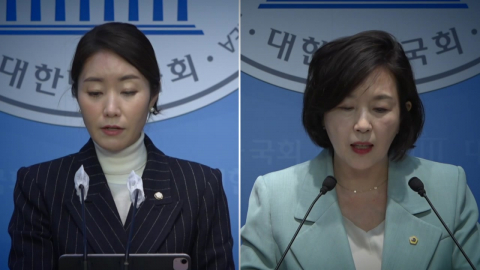
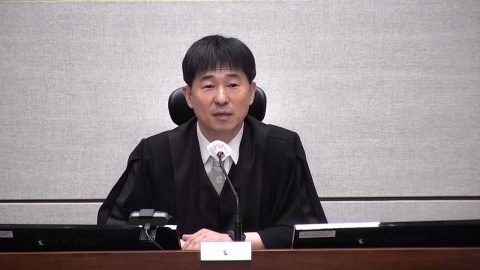
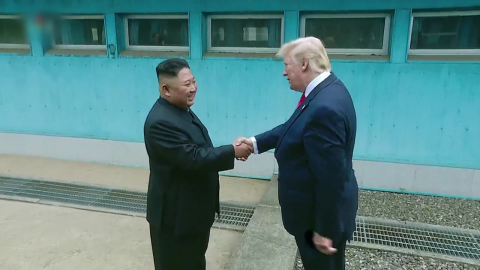
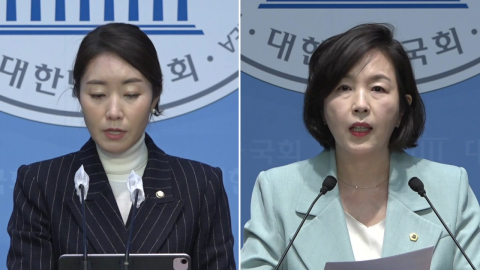
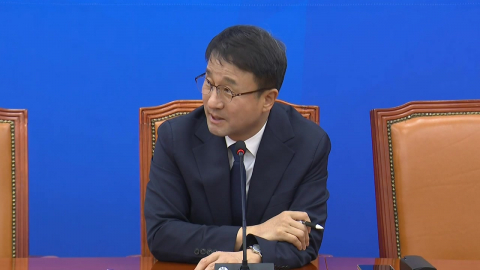


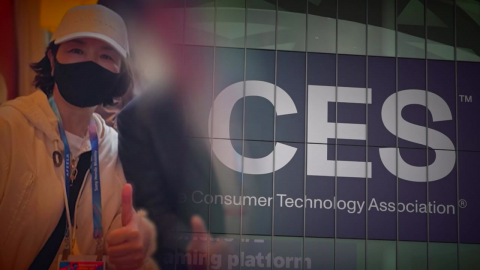


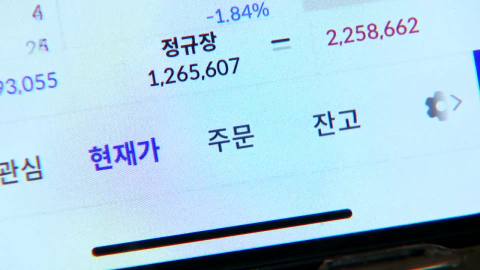
![미국 시민권 포기하고 입대한 '이재용 장남' 이지호…해군 통역장교 복무 [지금이뉴스]](https://image.ytn.co.kr/general/jpg/2026/0111/202601111257339675_h.jpg)
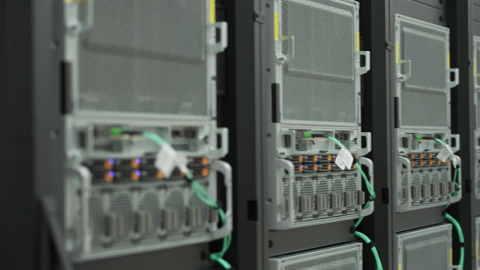

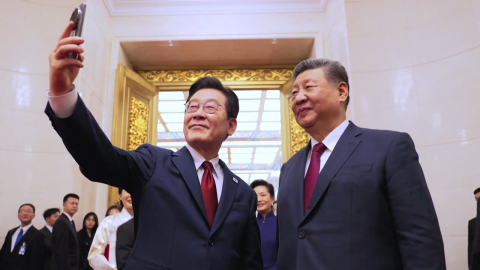
![[Y현장] "작품 속에 살아있을 이름"…'국민 배우' 안성기, 하늘의 별이 되다(종합)](https://image.ytn.co.kr/general/jpg/2026/0109/202601091042149519_h.jpg)
![[Y터뷰] '프로젝트 Y' 전종서 "한소희가 DM 보내 처음 알게 돼…답장했다"](https://image.ytn.co.kr/general/jpg/2026/0109/202601091441089698_h.jpg)


![[Y현장] 정우성, 고 안성기 추도사 "한국영화 온 마음으로 품은 선배님…영면하시길"](https://image.ytn.co.kr/general/jpg/2026/0109/202601091008157730_h.jpg)





